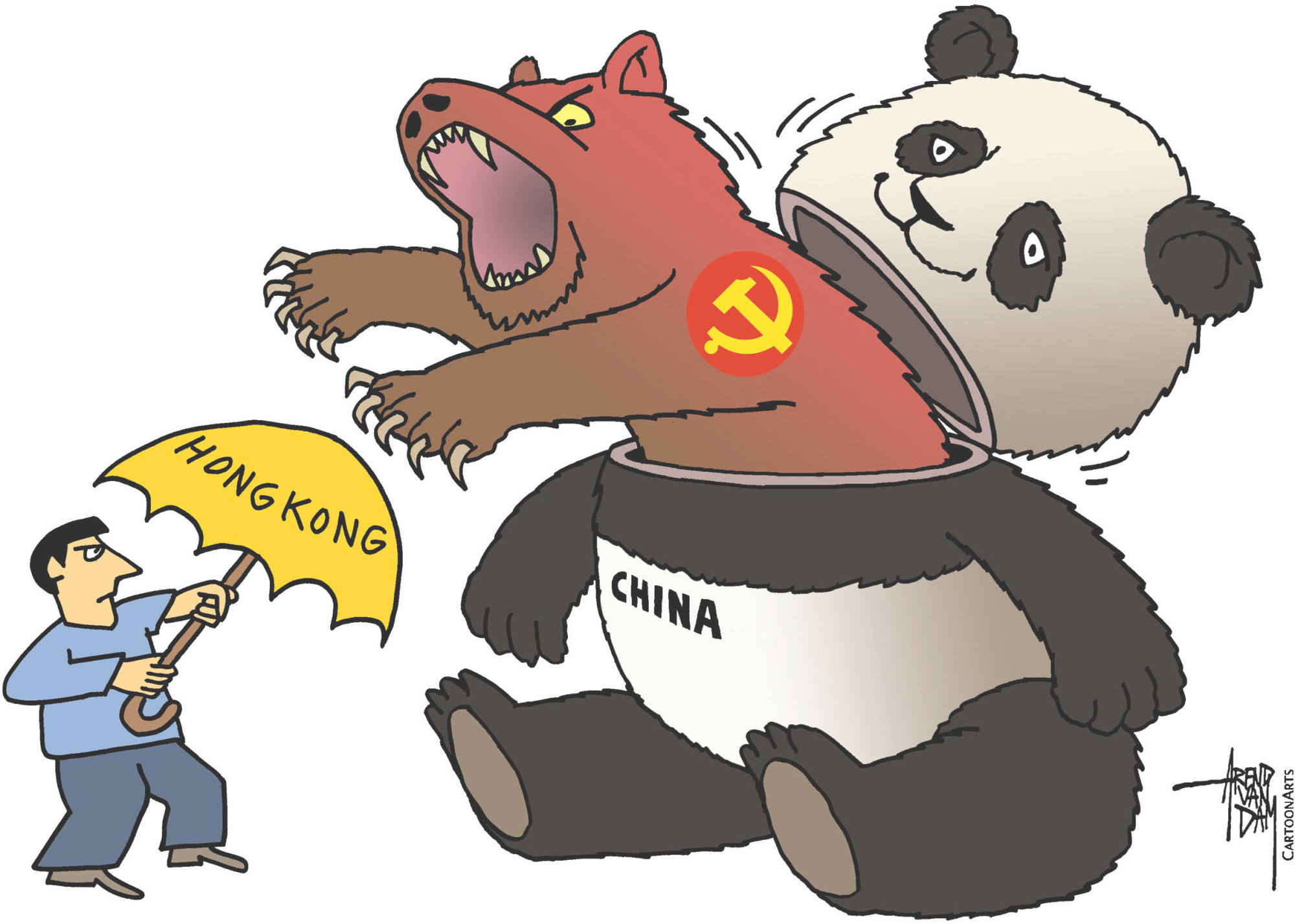Ongoing street protests in Hong Kong and Moscow have no doubt spooked the authoritarian duo of Chinese President Xi Jinping and Russian President Vladimir Putin. The Moscow protests, the largest in many years, must be keeping Putin up at night, or they wouldn't be dispersed with such unabated brutality. Yet rather than hold a dialogue with the people, Putin has been demonstrating that he is in control, even preening for photos in a tight leather outfit with his favorite motorcycle gang.
Nonetheless, the demonstrations have become a poignant sign of Putin's declining popularity, including among the Russian elite, whose views matter in ways that other forms of public opinion do not. For two decades, the elite's rival factions have generally seen Putin as the ultimate guarantor of their interests — particularly their financial interests. But as Russia's economy has sunk into sanctions-induced stagnation, Putin's leadership has started to look like more of a roadblock than a guardrail. Fewer and fewer Russians still accept that "Putin is Russia and Russia is Putin," a mantra that one heard regularly just five years ago, following the Kremlin's annexation of Crimea.
Moreover, Putin's hope that U.S. President Donald Trump would improve relations with Russia has begun to look short-sighted, if not downright delusional. Although Trump has weakened American institutions and undermined Western alliances, which has played into Putin's hands, the White House has also rendered U.S. foreign policy utterly unpredictable. Worse, the Trump administration is now systematically unwinding the arms control accords that long brought some degree of certainty to nuclear affairs.



